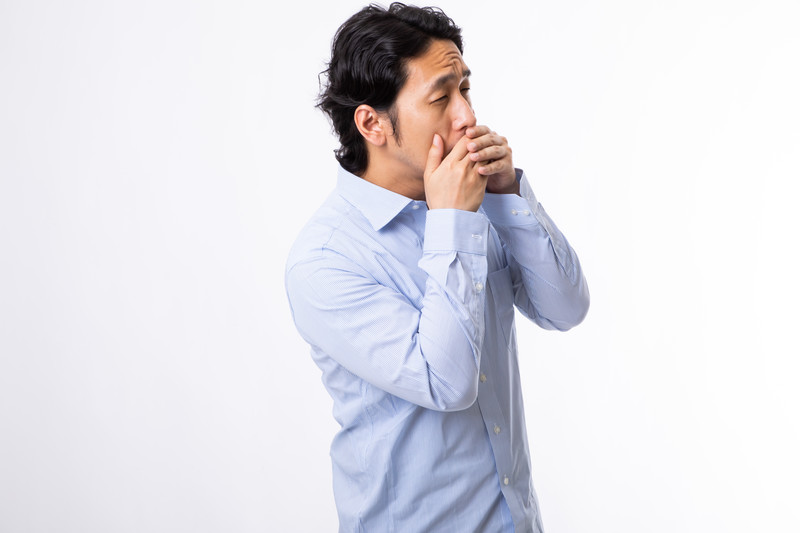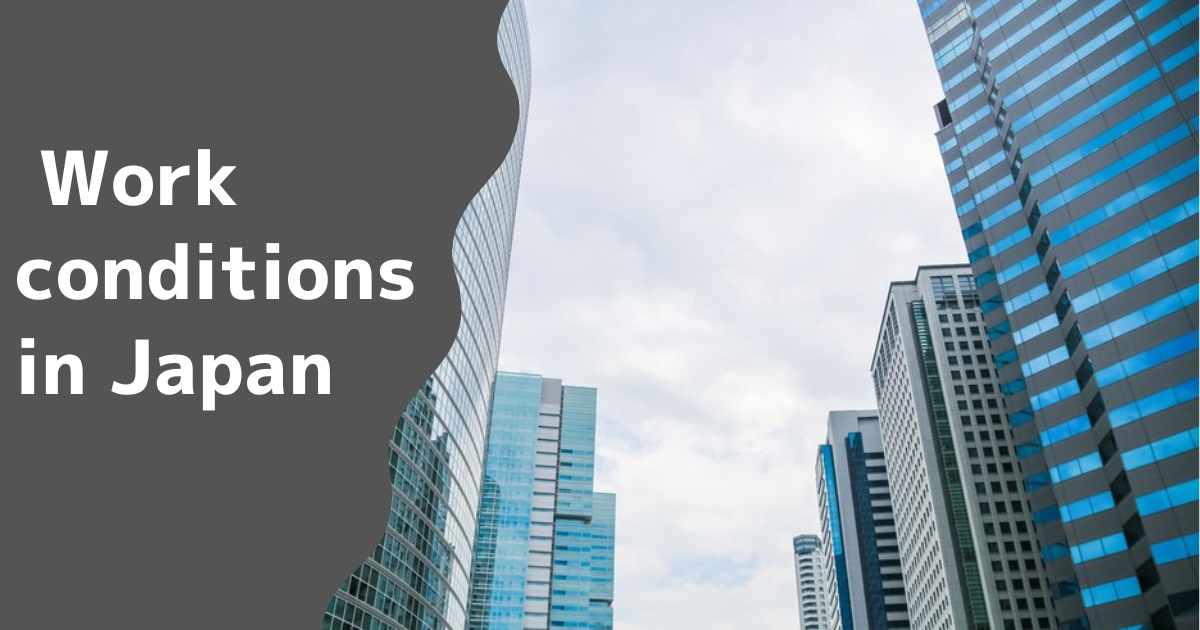If you have a chance to come to Japan to work, you might be concerned about the overall work conditions in Japan.
Since many Japanese companies provide you with lifetime employment, you might expect stable work life in Japan, however, most Japanese companies could require overtime work, and you could possibly think sacrificing your life to work.
In fact, “Karoushi (overwork death)” became huge social issue in Japan recently and Japanese people work hard comparing other counties people and we are required to have loyalty to their belonging companies.
In this article, I’d like to introduce about negative side and positive sides of Japanese work conditions and explain how you choose a suitable company for you.

Let me introduce about myself.
I am Hiro from Tokyo, Japan, born and raised here.
I have working experience in Japanese companies (logistics and manufacturing) as an international sales for almost 10 years, so I well understand Japanese people’s work culture.
Negative parts of Japanese work conditions

I’d like to introduce the negative part of Japanese work conditions.
Chronic overtime work in Japan
Based on research by OECD in 2020, an international comparison of aged 15-64 male and female, Japanese man has the longest paid labour time which is 452 min (7 hours 32 min) per day on average.
It is around 2 hours longer than the average time among OECD countries.
Whereas, Japanese ladies paid labour time is 272 min (4 hours 32 min) which is 1 hour longer than the OECD average.
The overtime work traditions are quite common in Japanese society and my father for example often came home late 8-9 pm after work every day when I was a kid living with him and most men (and women) are in similar situations.
Low annual leave usage
Japanese people tend to take fewer annual leaves.
Based on the poll done by travel agent Expedia (Referring to the below Japanese website), annual leave usage in Japan was around 50% till 2020 and more than half of the annual leaves left was not fully used.
In Japanese working places, taking annual leave is considered to be a negative thing, and we feel kind of guilty about taking annual leave even one day in our mind and some workers even bring souvenirs to give to their coworkers to show gratitude for letting them take annual leave.
If you won’t take given annual leaves (Usually 10-20 days received per year) in a certain period the annual leaves are expired, so a lot of them are wasted.
We all forget taking annual leave was a kind of employee’s right.
In 2019, the Japanese government started a regulation that all Japanese companies must let employees have at least 5 times annual leave per year, otherwise, the companies get punished and I hope the situation is gradually improving.
Simultaneous recruiting of new graduates

A simultaneous recruiting system is adopted in Japanese society, so the majority of Japanese people start job-hunting when they are in their final year of school or university and they enter companies soon after their graduation in early April.
There are both positive parts and negative parts of this system and I focus on the negative parts in this paragraph.
Majorities of companies take this opportunity to hire students and some students who already graduated from school/university or who didn’t concentrate on job-hunting in the final year cannot take advantage of this system and they have limited opportunity of finding attractive companies.
There are several reasons for students couldn’t be in the simultaneous recruiting system due to take the civil servant exam, judicial exam or studying abroad, etc. during the final year and if they start job-hunting after the activities and after graduation, they usually suffer from few job postings. (When hiring graduated persons, majority of companies rather expect their skills and experiences)
Work conditions for ladies

Japanese companies are traditionally not good environments for ladies.
Quitting a job after marriage
In the past, after getting married most Japanese ladies quit working and engage in housework and childcare.
Based on the poll done by the ministry in Japan, the percentage of housewives was 64% in 1980 and it significantly dropped since then.
Now the percentage of working wives is 69% in 2021 and the majority of ladies somehow continue working.
https://www.mhlw.go.jp/file/05-Shingikai-11201000-Roudoukijunkyoku-Soumuka/0000118655.pdf
The ratio of female managers in Japan
The number of working wives are increasing recently, but what about the ratio of female managers in Japan?
Based on the research by ILO (International Labour Organization), the female manager ratio is 12% in Japan in 2018, whereas the global average percentage of female managers is 27.1%.
https://www.gender.go.jp/kaigi/senmon/keikaku_kanshi/siryo/pdf/ka15-2.pdf
For example in my company’s Tokyo branch, there are only 2 ladies’ managers and the rest of the 13 managers are all male.
The situation is similar to other companies in Japan too.
The Japanese government is promoting more ladies to be managers and their target is 30% of female managers in 2020s and I hope the situations are gradually improving.
Positive parts of Japanese work conditions

I’d like to introduce the positive part of Japanese work conditions.
Lifetime employment
In most Japanese companies, lifetime employment is assured.
You usually never get fired unless you make any massive loss in belonging company or your company is bankrupted
and lifetime employment till retirement is kind of assured.
(I am talking about tendencies and there are a lot of exceptions.)
Also, salary is increasing according to the years employees work.
My current belonging manufacturing company have also never fired an employee due to bad sales result, Just several cases of resignation such as driving a company car after drinking alcohol and causing accidents.
Simultaneous recruiting of new graduates
Again, Japan is adopting a simultaneous recruiting system and I’d like to tell positive part of it.
Students are not required to have any particular skills or experience in work but a lot of companies tried to hire students who are in their final year of school/university.
The companies rather educate graduated new employees by their cost by seminar and job training.
Just being a final-year student and then you have a good opportunity to apply to an attractive company without skills and experiences.
Welfare systems are well organized
Welfare systems are well organized in most Japanese companies for example your health insurance, and pension insurance, are provided by the companies and employees feel safely protected by their companies.
Furthermore, all Japanese companies offer you a commuting fee to the offices and some generous companies offer you even a housing allowance.
For instance, I belong to a manufacturing company, and I receive around 50% of actual apartment cost by my company.
It totally depends on each company’s welfare policy.
To enter a good-standing company

I told the negative side and positive side of Japanese companies and now you could be concerned about how you should find such a good work environment company.
Check job postings & internet information carefully
To choose good work conditions companies, please carefully check job postings and internet information, which provide you with the information of overtime work situation of each company before applying for a job interview.
Average overtime work information is described in the most job posting, so don’t miss it.
If average overtime work or overtime work fee is not clearly mentioned you’d better ask companies during an interview.
It is not kind to hide the information and you possibly should avoid such companies if it is not shared openly.
Also, internet information is important to check reputations and whether company workers are satisfied with the current company’s condition or not.
Other parts to be checked in a job posting

There are other parts to be checked for job postings to decide whether you should apply to a company or not and I’d like to tell you some of them.
The job posting is posted for a long period or not
You need to carefully check whether a job posting that you are interested in is posted for a long period or not.
If it is a long period appearing such as half a year or more, that company is not popular among Japanese or employees are quitting frequently due to bad working conditions and then there is the necessity of posting for a long period.
so you possibly should avoid applying for such a long period of posted jobs.
The hiring condition is too loose or not
If the condition of hiring is loose (not strict at all) such as no academic background required, no age limitation, or no experience required, that company’s working conditions could be bad.
Some companies which exploit employees need more and more workers because it is high resignation rates,
so not many conditions are required for hiring nevertheless to get new using up employees soon.
If you find such job postings, you should avoid applying.
Income level is too high or not
Usually if income level is high it can be considered positively but it could possibly sneakily include overtime work fee or holiday work as well and consequently, you might be required much overwork daily
so please carefully check whether the income level described in the job posting is average or too high.
Some companies don’t specifically describe income breakdowns, so you should be careful if the income in a job posting is too high.
You should avoid certain industries

If you want to avoid bad conditions companies, you should firstly check applying industries.
Labour intensive industries
Labour-intensive industries such as food service (restaurant, bar, etc.), lodging (hotel, etc.) and retail tend to have long working hours and you may possibly avoid the industries if you don’t prefer long working conditions.
Other busy industries
There are lucrative but so busy industries such as TV stations, publishing, IT, and consulting in Japan.
Working in those industries, you may receive a higher income than other industries but could be very hard working.
According to Doda, a famous Japanese recruitment company website (It is a Japanese website), the average overtime work in Japan was 22 hours per month in 2022.
Also, long overtime work jobs are listed on this website as follows.
- Producer/Director/Planner for publishing, advertising, Web or film (37.1 hours)*monthly overtime work
- Business consultant (37.1 hours)
- Construction management (35.3 hours)
- Merchandise planing/Service planing (34 hours)
- Logistics service (31.1 hours)
- Product planing (29.0 hours)
- Design supervision/Construction management (28.9 hours)
- Assembly engineer (28.4 hours)
- Medical device manufacturing sales (28.1 hours)
- Game creater (Web/Mobile/Social) (28.1 hours)
If you want to avoid long working hours jobs, you shouldn’t apply above jobs in Japan, though the incomes are rather high.
Conclusion
In this article, I introduced overall Japanese work conditions and hope you will refer to it and find an appropriate company for you.
Thank you for reading this article till the end.



コメント Comment